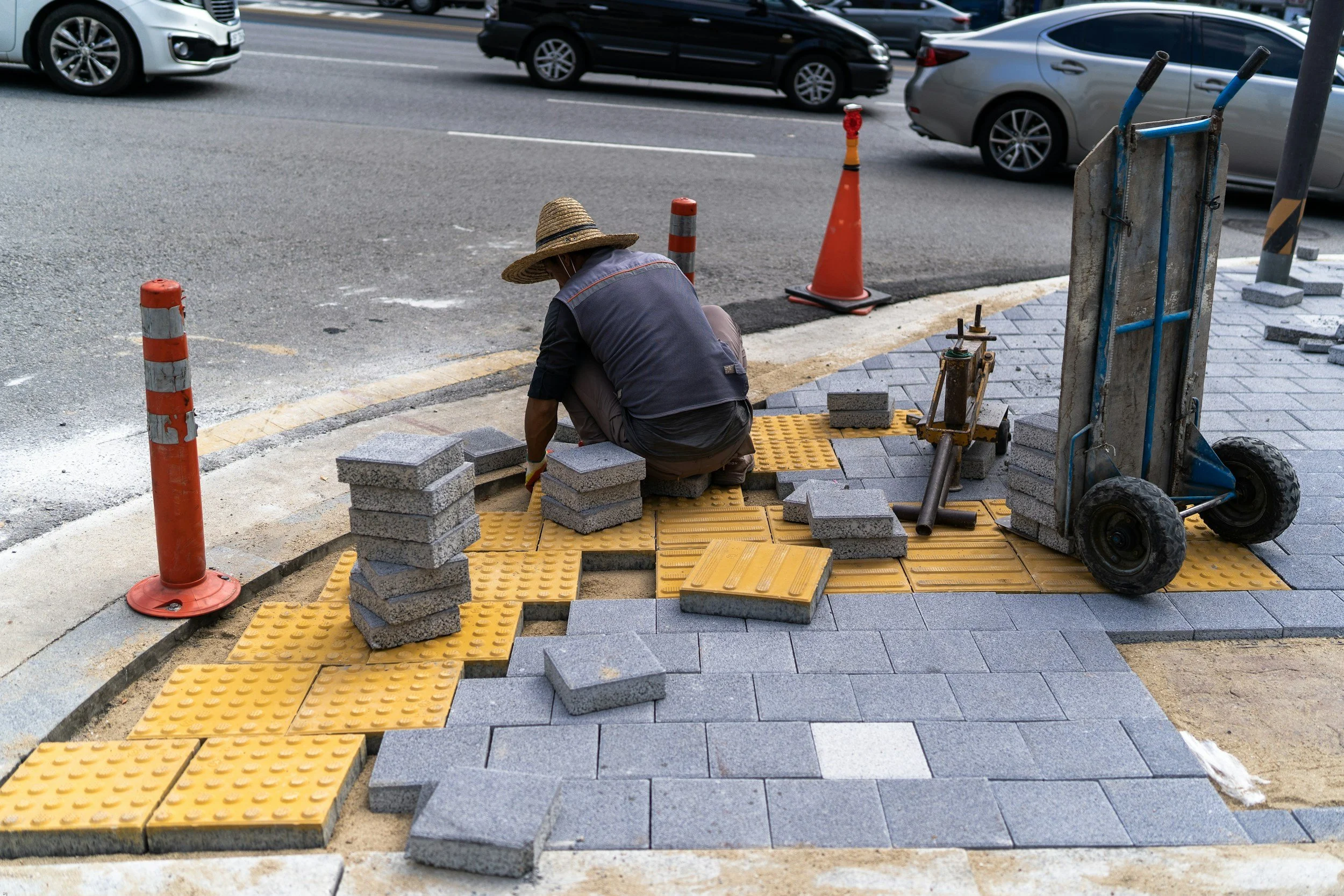How to Remove Oil Stains from Pavers?
Pavers are a popular choice for driveways, patios, and walkways due to their aesthetic appeal and low maintenance. However, like any outdoor surface, they can get dirty, and one of the most common types of stains you might deal with is oil. Whether it's from a car leak, grilling mishaps, or spilled oil from a lawnmower, oil stains on pavers are an eyesore, but don't worry — with the right approach, you can restore your pavers to their original condition. This article will walk you through the best ways to remove oil stains, answer some common questions, and give you tips for keeping your pavers clean.
General Tips for Cleaning Pavers
Before diving into specific oil stain removal methods, it's important to remember a few general guidelines when cleaning pavers:
Always follow the manufacturer’s cleaning instructions if available.
Test any cleaning solution in an inconspicuous area first to make sure it won’t damage the paver’s surface.
Use a soft brush for scrubbing to avoid scratching or damaging the pavers.
Be cautious when using pressure washers — while they can be effective for cleaning, they can also dislodge the joint sand between pavers, so use them carefully.
How to Remove Oil Stains from Pavers
Oil stains, especially older ones, can be tricky to remove, but with the right approach, you can get your pavers looking clean again. Here’s how you can tackle those stains.
1. Blot Fresh Oil Stains
If you spot an oil spill right away, grab some absorbent materials like paper towels, cloth, or even cat litter. The goal is to soak up as much of the oil as possible before it soaks into the paver. The quicker you act, the easier it will be to clean.
2. Scrub with Detergent
For lighter oil stains, scrubbing with a little dish soap or laundry detergent can do wonders. Mix the soap with warm water, then scrub the stained area using a nylon brush. Make sure to rinse the paver thoroughly afterward to avoid leaving soap residue.
3. Use Granular Absorbents for Dried Oil
If the oil has dried or hardened, sprinkle a granular absorbent like kitty litter, sawdust, or sand over the stain. Let it sit for a few hours to absorb the oil. Afterward, sweep up the granules and scrub the area with detergent as described above.
4. Poultice Cleaner for Stubborn Stains
For older or more stubborn oil stains, you might need a poultice cleaner. These cleaners are designed to draw out oil and grease from the surface. Apply the poultice to the stain, cover it with plastic, and let it sit for four to eight hours. Afterward, simply scrape off the poultice and rinse the paver.
5. Brake Cleaner (For Tough Stains)
Brake cleaner can be an effective way to deal with tough oil stains, as it cuts through grease and oil easily. However, it’s important to use brake cleaner with caution. Always wear gloves, avoid inhaling vapors, and take care not to apply it to unintended surfaces. A little goes a long way, so use it sparingly.
Home Remedies for Removing Oil Stains
If you prefer a DIY approach, there are a few simple home remedies that can help remove oil stains from pavers.
Dish Soap or Laundry Detergent: For mild stains, scrubbing the area with a bit of dish soap or laundry detergent can help lift the oil.
Flour, Hydrogen Peroxide, and Mineral Spirits Paste: For deeper stains, you can make a paste by mixing flour, hydrogen peroxide, and mineral spirits. Apply the paste to the stain, let it sit, then rinse it off. This homemade poultice can help draw out oil from the paver’s surface.
How to Prevent Oil Stains on New Pavers
Prevention is always the best course of action, and it's especially true when it comes to oil stains. Here are some ways to keep your new pavers looking great:
Blot Spills Immediately: If oil or grease is spilled on your pavers, quickly blot it with absorbent materials to prevent it from soaking in. The faster you act, the less likely the stain will set in.
Use Absorbent Materials Nearby: If you're working with oil near your pavers (for example, while maintaining your car), keep absorbent materials like rags or sand nearby to soak up any accidental spills before they have a chance to stain.
Install Sealers: Applying a sealer to your pavers can create a protective layer, making it more difficult for oil to penetrate and stain the surface.
FAQ
How long does it take to remove oil stains from pavers?
The time it takes depends on the severity of the stain. For light stains, scrubbing with detergent might take around 10 to 30 minutes. Tougher stains could require repeated cleaning sessions, and using a poultice cleaner might take 4 to 8 hours of dwell time before you can clean it off.
What’s the easiest way to remove old oil stains?
The easiest method is to use a poultice cleaner designed to absorb the oil. Once the cleaner has been applied, let it sit for a few hours to lift the stain. After that, simply sweep away the residue.
Can I use brake cleaner to remove oil from pavers?
Yes, brake cleaner can be effective for tough oil stains. However, it should be used with care. Avoid skin contact, inhaling vapors, and applying it to unintended surfaces.
What home remedy can I use to remove oil stains from pavers?
For mild stains, you can try scrubbing with dish soap or laundry detergent. For more stubborn stains, make a paste with flour, hydrogen peroxide, and mineral spirits. Apply it to the stain, let it sit, and rinse it off.
How can I prevent oil from staining new pavers?
To prevent stains, always blot oil spills quickly with absorbent materials. It's best to be cautious when handling oil near pavers, but having a plan to clean up spills right away can save you from long-term stains.
Conclusion
Oil stains on pavers don’t have to be a permanent issue. Whether the stain is fresh or old, there are plenty of methods available to tackle the problem. By following the right steps, using the right products, and acting quickly, you can keep your pavers looking clean and beautiful for years to come. And if you're unsure or dealing with stubborn stains, don't hesitate to reach out to a professional for help. Regular maintenance and a little extra care can go a long way in keeping your outdoor spaces looking their best.
To get started on your landscaping project, contact us today! At Mountainscape Contracting, we will help you with your ideal landscaping needs and provide the best suggestions for transforming your yard!
READ MORE…
When Is It Time to Resurface or Replace Your Driveway?




